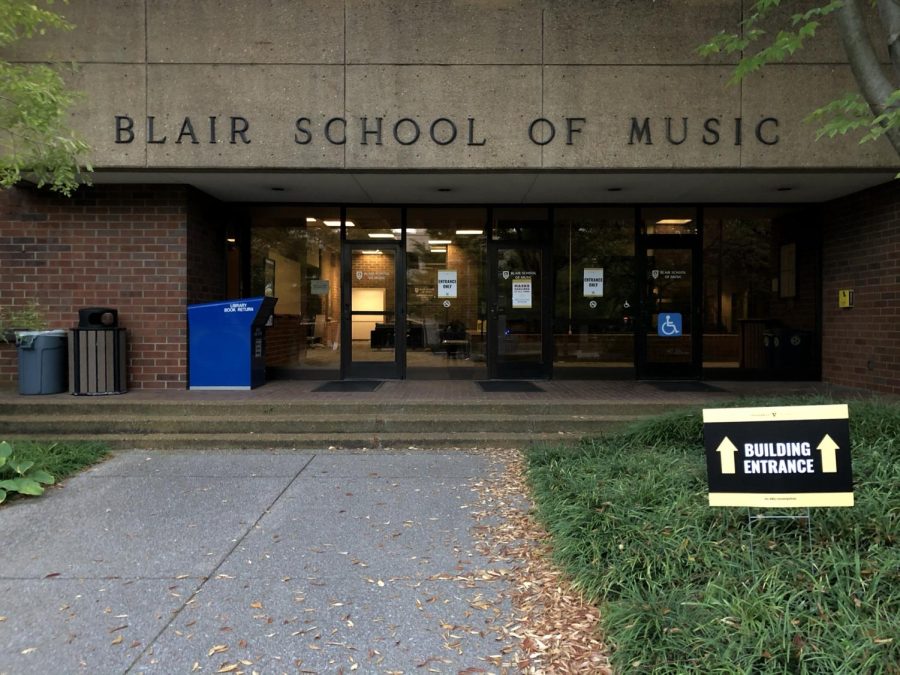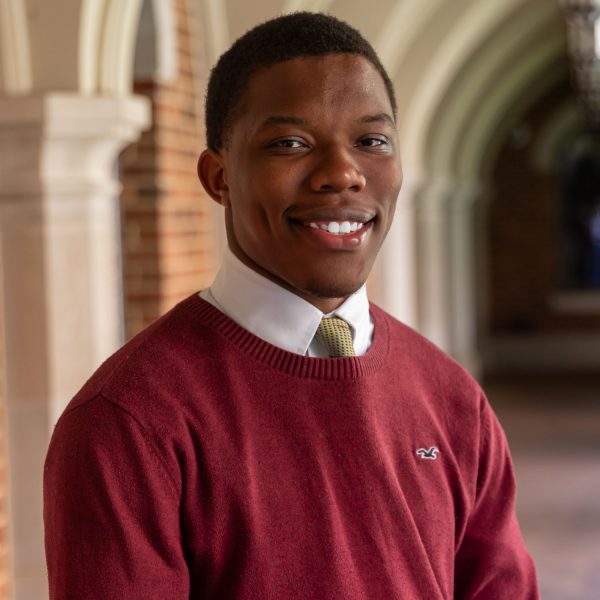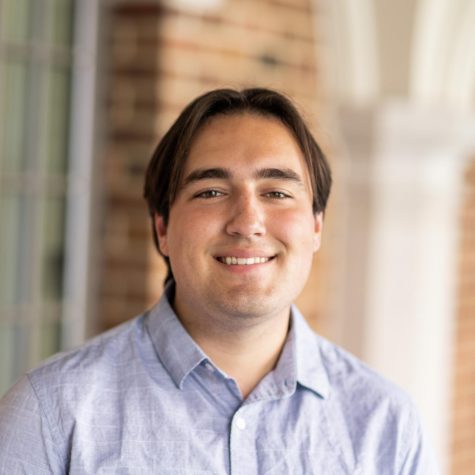Saxophonist Jeff Coffin and pianist Pascal Le Boeuf are the most recent Blair School of Music professors to have their work nominated for the 2023 Grammy Awards. Coffin’s album “Between Dreaming and Joy” is nominated for Best Contemporary Instrumental Album and Le Boeuf’s single “Snapshot” is nominated for Best Instrumental Composition.
Coffin has won three Grammys in the past for his work. Located in Los Angeles, California, the 65th Annual Grammy Awards will air on Feb. 5 at 6 p.m. CST.
Meet the faculty

Coffin, an adjunct instructor of jazz saxophone at Blair, began his musical journey when he started playing the alto saxophone in the fifth grade. He credits his late teacher Arthur Lagasse for making him the world-renowned musician he is today.
Coffin shared that he had not originally wanted to play the saxophone but now considers himself “blessed” for taking it up.
“Originally, I wanted to play drums, and I think I’ve always been attracted to rhythm. But when it was time to pick out instruments, my director was like ‘we have plenty of drummers, what about playing the saxophone?’” Coffin said. “I think in some ways the saxophone picked me, more than I picked it…I found out pretty quickly that I could play emotionally on the instrument.”
Upon graduating from the University of North Texas in 1990, Coffin became a member of Bela Fleck and the Flecktones. However, due to their extensive touring requirements, Coffin parted ways with the Flecktones in 2008 and joined the American Rock’s “Dave Matthews Band.” There, Coffin filled in for the late LeRoi Moore, who died suddenly at age 46 in a car accident. Coffin said touring around the world with the Dave Matthews Band has been the highlight of his career.
“It’s pretty rare to be doing what I’m doing, it’s the best situation that is possible. Compare it to touring with the Rolling Stones—it’s at that level. We’re playing in front of 50,000 to 20,000 people a night, touring around the world. It’s a lot of fun, but it’’ a lot of work and a lot of time away from my family and students,” Coffin said.
Coffin explained that his experience as a touring musician helped him to be a better instructor for his students at Blair.
“I’ve been on the road since 1997, and the information that I bring to students is 25 years of experience as a successful performing musician, and as a teacher, so there’s nothing that comes up that I haven’t witnessed before or been part of,” Coffin said.
Coffin began working at Vanderbilt in 2014 and said that he loves being able to connect with students about life through music.
“I’m in the middle of my eighth year, and it’s great; I love it, I love being around the students, and working with them, talking with them. Really at the end of the day, we’re talking about life—we’re just using music as the metaphor,” Coffin said.

Pascal Le Boeuf, an assistant professor of Practice in Music and Technology at Blair, also works as a composer and solo artist. In 2004, he and his brother Remy Le Boeuf formed the modern jazz group, Le Boeuf Brothers, and released four jazz, hip-hop, electronic and classical albums.
“We always played music together, and when it was time to think about college and career choices, playing jazz is something that both of us wanted to do because it allowed us to stick together, do something that we loved to do and have a good time in the process,” Pascal Le Boeuf said.
Pascal Le Boeuf credits his wife, Molly Harren, assistant professor of music theory and composition at Blair, for kick-starting his Vanderbilt career.
“My wife and I were hired at the same time. She’s my favorite composer,” Le Boeuf said.
Nominated albums
Coffin’s recently released album “Between Dreaming and Joy” was nominated for Best Contemporary Instrumental Album. A three-time Grammy award-winner and eight-time Grammy nominee, Coffin said his goal is simply to create quality music and give back to those just like him, rather than to win awards.
“I never did it for the awards, so it’s about doing your best work and letting the chips fall where they may. If you are getting into music to win a Grammy award, then you’re getting into it for the wrong thing,” Coffin said.
He also shared that African-American-centered genres like R&B and jazz-influenced his music style.
“I have always loved vocalists, like old R&B vocalists, and so Black American music was a huge influence on me. Black American music kinda gently grabbed me by my throat and said ‘you will listen to me,’ so I did,” Coffin said.
Coffin explained that “Between Dreaming and Joy” is special to him because it, unlike many of his other Grammy-nominated albums, he orchestrated it himself.
“All the tunes are written by me and there is a co-writer on it, but it is all my vision,” Coffin said. “I’m proud of it. I felt like there were a lot of really good tunes on it and that it represented music that I was really into, and I think that’s unusual.”
Pascal Le Boeuf collaborated with international clarinetist Tasha Warren and cellist Dave Eggar to produce his Grammy-nominated single “Snapshot,” which is competing in the “Best Instrumental Composition” category. Pascal Le Boeuf said that he is happy to be nominated in a category with some of his musical heroes.
“I don’t think this is the kind of thing you plan for or expect. I received a nomination in the past, and I am very excited to be returning,” Le Boeuf said. “I am also really excited to be going in this category this year because the other nominees for Best Instrumental Composition are people that I consider heroes.”
To Pascal Le Boeuf, this single is “one of a kind” because its motives reach beyond the listener’s ears. He also provided insight into what he believes makes music so powerful.
“I think what the piece is really about is that kind acts, generous acts, pass from person to person, reaching from the past to the present and forming foundations for musical communities,” Pascal Le Boeuf said. “Music can be so powerful in different ways and with different people, and that’s one of the things that I love about it. There is no objective quality that makes music good, it entirely has to do with who’s listening, what it means to them, what it means to the person making it, and how all those things can jumble together,” Le Boeuf said.




